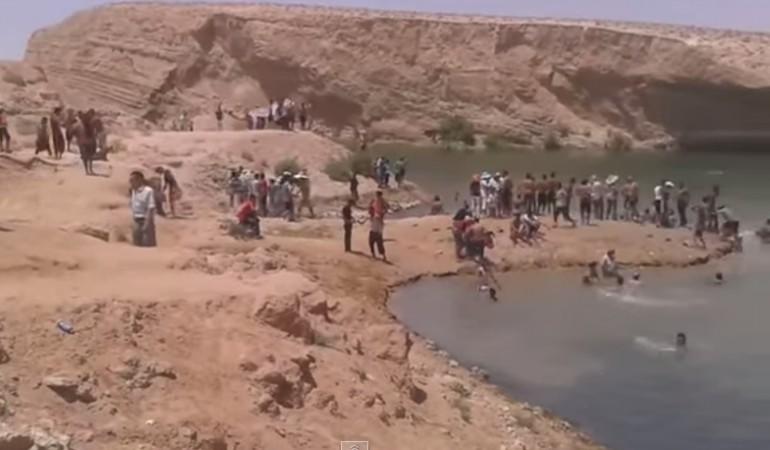
A mysterious lake has reportedly appeared out of nowhere in the Gafsa region of southern Tunisia.
The lake was discovered in the drought-stricken area by local shepherds. The sudden appearance of the water body in the middle of a desert has raised concerns about its origin and quality. Although it is a worry for the scientists, people are enjoying the cool water to beat the scorching heat.
Over 600 people are believed to have visited the pool, despite being warned by the local authorites about the possibility of the water being contaminated with carcinogens or even radioactive carbons. However, no official ban has been made against swimming in the lake.
The pool, locally dubbed "Lac de Gafsa", looked crystalline blue at first but then turned green with algae, the report added.
"Some say it is a miracle, while others are calling it a curse," Lakhdar Souid, a Tunisian journalist, told France 24 television, according to The Guardian.
Check out a video of the mystery lake.
However, scientists have not yet provided any explanation regarding the sudden appearance of the lake. Meanwhile, some geologists suspect the seismic activity may have disturbed the rock surface, causing groundwater to rise above the surface.
The mysterious water body is considered to be one million cubic metres in volume and 10 and 18 metres deep, while it covers a length of around one hectare area.
"This region is overflowing with large deposits of phosphate, which can leave behind radioactive residue so there is a real risk that the water is contaminated and carcinogenic. The site is certainly stunning and there are many large rocks perfect for diving, but it has become infested with green algae, meaning the water is stagnant and conducive to diseases," Souid pointed out.
"So there is a real risk the water is contaminated and carcinogenic. In the first few days, the water was a crystal clear, turquoise blue. Now it is green and full of algae. This means it is not being replenished and is conducive to disease," the journalist added.
The Gafsa region is home to one of the largest phosphate mines while Tunisia is the world's fifth largest exporter of the chemical.








